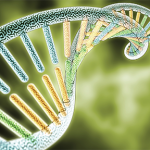Dr. Klareskog is both “a good mentor and a good scientist,” remarks Alvin F. Wells, MD, PhD, director of the Rheumatology and Immunotherapy Center in Franklin, Wis., and a leading U.S. clinical trials researcher. Dr. Wells was Dr. Klareskog’s first postdoctoral fellow while the latter was teaching at Uppsala University in 1988. Since that time, the two have published nine papers together as their research interests have overlapped. “He is inclusive and lets others take a leadership role, gives credit where credit is due and is one of our outstanding fellow leaders,” Dr. Wells says.
Equally important has been the opportunity to contribute to collaborations using the opportunities that have been provided by EU funding of collaborative networks in Europe. Developed together with many European colleagues, most notably professor Tom Huizinga from Leiden, these collaborations have led to productive networking both in European and international arthritis research in general. They have also contributed to the development of the new paradigm of arthritis prevention that is based on the improved understanding of how genes and environment gradually can cause the development of chronic inflammation in joints.8
Dr. Wigzell, who has watched Dr. Klareskog’s growth as a scientist and collaborator, notes that his colleague’s earliest concerns with public health continue to inform his current approach to collaborations. One of Dr. Klareskog’s most successful ventures, he notes, is COMBINE Sweden, a consortium he initiated in June 2008, comprising academic medical researchers, clinicians, patient participants and industry representatives to enhance collaborations between stakeholders, with the motto, “Controlling Chronic Inflammatory Diseases with Combined Efforts.” The project also nurtures the careers of young rheumatologists, offering sponsorship and project management experience.
A Life in Science
Dr. Klareskog is well respected in the scientific community. “One of his attributes as a scientist is his great breadth,” says David S. Pisetsky, MD, PhD, professor of medicine and immunology at the Duke University Medical Center in Durham, N.C., chief of rheumatology at the Durham VA Medical Center and former editor of A&R (2000–2005) and of The Rheumatologist (2006–2011). Dr. Pisetsky, who considers Dr. Klareskog both a colleague and a good friend, notes that Dr. Klareskog’s other great strength has been the creation of collaborative networks. Both his scientific genius—he is an accomplished biochemist, immunologist, geneticist and epidemiologist—and his ability to collaborate, says Dr. Pisetsky, have contributed to his success.
“To move from one area of science to another requires extraordinary skill,” notes Dr. Pisetsky, “because you have to establish your credibility with each discipline. It does not happen every day that biochemists go into epidemiology. In addition, it is very difficult to create these networks and to keep them going.”
